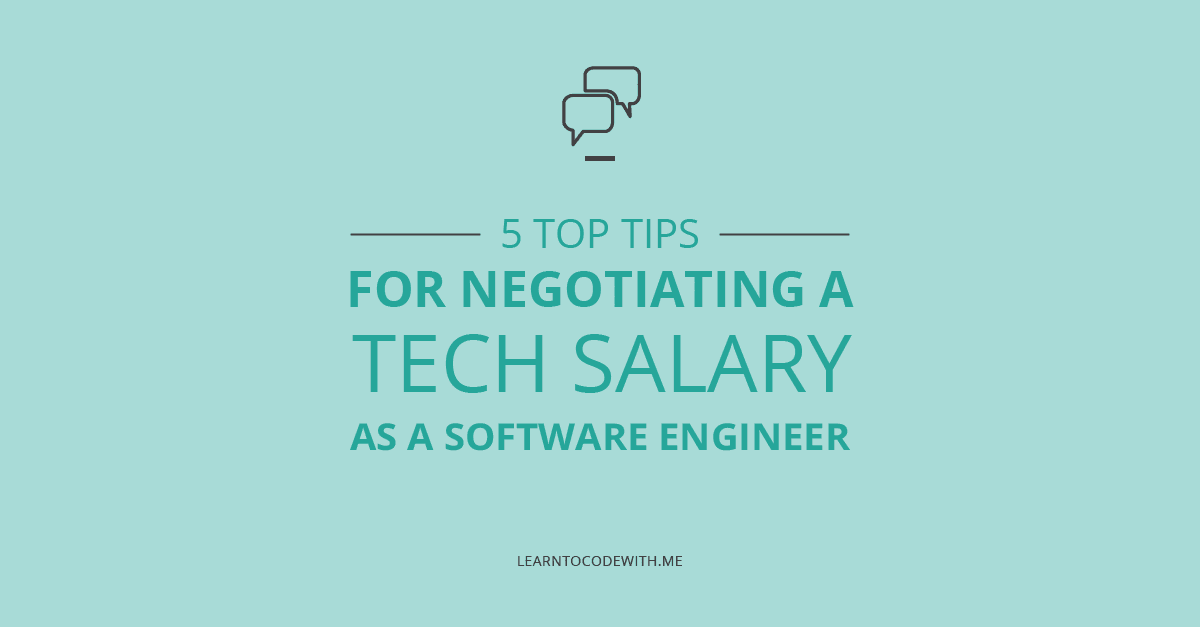How do you gain the upper hand at the negotiating table with Google, Facebook, and thousands of other tech companies?
You’re probably more valuable than you think. In this sponsored guest post, Hack Reactor cofounder Shawn Drost explains how to negotiate your salary and walk away happy.
Take it away, Shawn.
—-
A riddle: what’s an opportunity for people to earn tens of thousands of dollars that is almost universally dreaded?
You guessed it: salary negotiation. There are a few reasons why people feel nervous even thinking about asking for a raise or a higher offer. One is that it can feel confrontational–even adversarial–to ask an employer for more. Another is that some people feel awkward advocating for themselves. Lastly, this simply isn’t an interaction that we have very often, so, unlike meeting people at a party, we don’t get many chances to try different strategies and get increasingly comfortable at salary negotiation.
That’s where we come in. At Hack Reactor, we have helped literally thousands of graduates negotiate their offers to earn at the top of what the market will pay. Here’s some of what we’ve learned and passed on to them:
1. Know your alternatives (even if you don’t want them)
If you’re selling me a car, I know that if I offer to pay you something too far below market-value, you’ll go find someone else to sell the car to, because other buyers are out there. It’s the same thing when you are selling your services. In a salary negotiation, the company might offer you more because they understand that if they don’t, someone else will.
Whether or not this is ever spoken aloud, your market value is the backdrop of every salary negotiation. Use sites like Indeed and Payscale to research the salary ranges for your role and location so you know where you stand coming in. Factor in your experience level as well: you might not want to aim for the top of the salary range if you only have a year or two under your belt.
2. Consider: What have you done for the company lately?
Think about the last six months and what you did during that time to make the company better/more efficient/more profitable. If you’re considering bringing up that major fire you put out two years ago, or how you saved a million dollars in your third month of employment, that stuff is great too, but recent accomplishments matter more.

Major wins are great, but recent wins might be better
For one, they show your present value. Most companies are focused on the short-to-mid-term future, and you want to show that you deliver value early and often. Second, it’s harder to cherrypick recent events. Everyone will have had a big win in the last five years, so it says a lot more if you had one in the last five days. Lastly, humans are generally wired to think more short-term, so you might as well play into that.
If this is your first job or first tech job, you can point to recent projects. One advantage our students have is that they all come into the market having just completed a complex, fully functional app, which showcases their present abilities (see Hack Reactor student projects).
3. Tell your story
You are more than a list of skills and credentials. If you’re negotiating for a new job rather than a raise at a company where people know you already, telling the story of why you got into tech and why you decided to become an engineer (or how you have progressed as an engineer) helps round you out as a person.
Before I cofounded Hack Reactor, I started a company to help artisans in Guatemala sell their wares in the U.S. I also spent years as a freelancer helping various companies build software, and eventually became a technical team lead at OkCupid Labs, working with a team of 4. Freelancing, team-building, and entrepreneurship inspired me to spread the gift of coding to students. It also gives me a wide range of experiences to draw on.

Your story is how you compete with others who may have more years of technical experience. Many of our students come from other fields–finance, marketing, sales, you name it–and yet they frequently sign six-figure contracts as software engineers within a year of writing their first line of code. How? They power through our free, self-paced Prep course, then move on to our immersive program. They enter the job market with up-to-date skills, diverse professional experiences, and a story that shows their determination and willingness to continuously improve. That has real value to an employer.
4. Show that you future-proof the company
Your value is not just what you can do today, but what you can pick up when all of a sudden your company realizes they need to recode everything into SpaceBird. Can you code in SpaceBird? No, because I just made it up. But if you can learn new languages and frameworks, and solve problems that haven’t been solved before, you help future-proof the company.
This is the reality for most tech companies these days: they aren’t worried about the problems they’ve solved, but about the problem coming around the bend that they’ve never seen before. We train our students for this exact situation. The tools they learn are just a bonus. The real skill development is in learning to think like a software engineer and to hack through unique problems. Powering through a program like our prep course shows that you are a self-starter who can learn independently.
5. Acknowledge that it’s 100% okay to ask for more
Are salary negotiations inherently awkward? You bet–at least for most people. If there’s a mental leap for you to overcome, think about how you would advocate for a specific friend or coworker. You want to enter the negotiating space calm and confident, so brush off your anxieties and take the plunge. With points 1-4 under your belt, you’ve got this! Remember: salary negotiations are well worth it, and no one is going to do it for you. Furthermore, companies rarely offer the highest number they can, because no one wants to pay more than they have to.
TL;DR if you have strong tech skills and the willingness to learn more, you have huge value in the tech sector and you should be paid like it.
If you’re considering a career as a software engineer, Hack Reactor just launched a new self-paced online course called Hack Reactor Prep. It’s perfect for self-starters and is designed to get you where you need to be for an immersive bootcamp. With 90 hours of free exercises and an online community of learners like you, you’ll be well prepared for your future as a software engineer. If you are a hard worker and willing learner, you are exactly the type of person I built Hack Reactor for, and I’d love to help you become a software engineer.
About the Author
Shawn Drost is the cofounder of Hack Reactor, a coding bootcamp founded in 2012 along with his friends Tony Phillips, Marcus Phillips, and Douglas Calhoun. Hack Reactor has educated over 3,000 software engineers, and strives to transform higher education to be more transparent, accessible and outcomes-driven. Prior to Hack Reactor, Shawn was a technical lead at OkCupid Labs and a freelance engineer for solar companies and YC startups.
—-
This post has been sponsored by Hack Reactor

